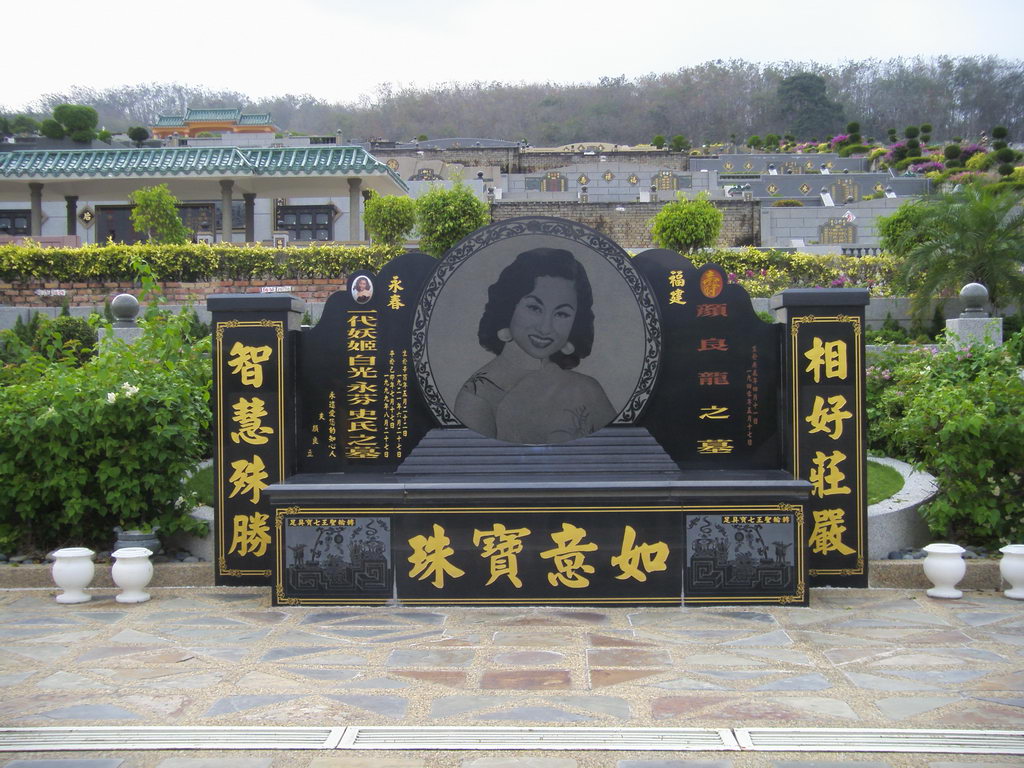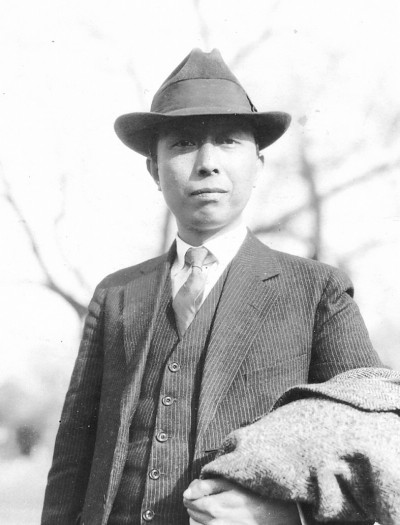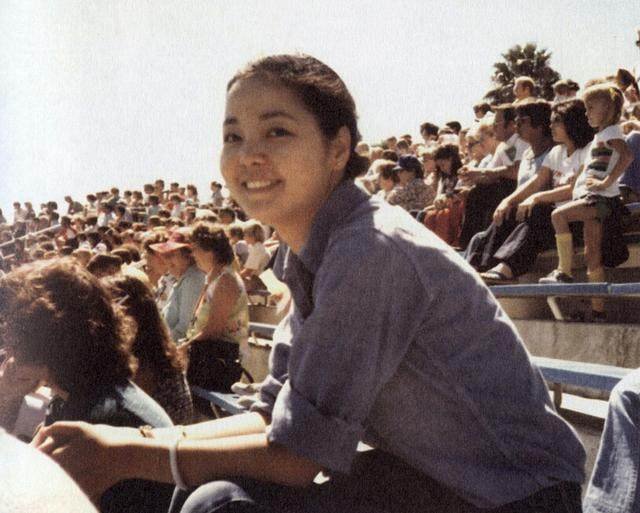|
Shidaiqu
Shidaiqu () is a type of Chinese popular music that is a fusion of Chinese folk, American jazz and Hollywood film music that originated in Shanghai in the 1920s.Shoesmith, Brian. Rossiter, Ned. 004(2004). Refashioning Pop Music in Asia: Cosmopolitan flows, political tempos and aesthetic Industries. Routeledge Publishing. Terminology The term literally translates to 'songs of the era' in Mandarin Chinese. When sung in Cantonese, it is commonly referred to as ; in Amoy Hokkien, it is known as . These terms incorporate the native names for the dialects. The term is believed to have originated in Hong Kong to describe a genre of popular Chinese music that gained prominence in Shanghai during the early to mid-20th century. This genre emerged as a fusion of traditional Chinese melodies, Western musical elements, and influences from jazz and popular music of the time. Musicality Shidaiqu is a kind of fusion music that makes use of jazz musical instruments (castanets, maracas ... [...More Info...] [...Related Items...] OR: [Wikipedia] [Google] [Baidu] |
Mandopop
Mandopop or Mandapop refers to Mandarin popular music. The genre has its origin in the jazz-influenced popular music of 1930s Shanghai known as Shidaiqu; later influences came from Japanese enka, Hong Kong's Cantopop, Taiwan's Hokkien pop, and in particular the campus folk song folk movement of the 1970s. "Mandopop" may be used as a general term to describe popular songs performed in Mandarin. Though Mandopop predates Cantopop, the English term was coined around 1980 after " Cantopop" became a popular term for describing popular songs in Cantonese. "Mandopop" was used to describe Mandarin-language popular songs of that time, some of which were versions of Cantopop songs sung by the same singers with different lyrics to suit the different rhyme and tonal patterns of Mandarin. Mandopop is categorized as a subgenre of commercial Chinese-language music within C-pop. Popular music sung in Mandarin was the first variety of popular music in Chinese to establish itself as a v ... [...More Info...] [...Related Items...] OR: [Wikipedia] [Google] [Baidu] |
Bai Guang
Shi Yongfen (; 27 June 1921 – 27 August 1999), known professionally as Bai Guang (; also credited as Pai Kwong, Bai Kwong and Bai Kwang), was a Chinese actress and singer. By the 1940s, she became one of the Seven Great Singing Stars. Early life Shi Yongfen was born in 1921 in Zhuozhou, Hebei. Her father was a quartermaster under general Shang Zhen. In her early years, she was a student of the Beiping Salon Theatrical Troupe (), and once performed Cao Yu's play ''Sunrise (play), Sunrise''. In 1937, she studied at the University of Tokyo's music department until World War II in 1942. After drama school, she wanted to be a movie star. As she proclaimed, she wanted to be like the beams of light coming off the movie projectors onto the big screen; hence her stage name. Career Her mandopop songs were often used in many of her movies as soundtracks. In an age and culture where light, higher voices were usually favored, she had a slightly deep and hoarse voice, which helped her bec ... [...More Info...] [...Related Items...] OR: [Wikipedia] [Google] [Baidu] |
Cantopop
Cantopop (a contraction of "Cantonese pop music") is a genre of pop music sung in Cantonese. Cantopop is also used to refer to the cultural context of its production and consumption. The genre began in the 1970s and became associated with Hong Kong popular music from the middle of the decade. Cantopop then reached its height of popularity in the 1980s and 1990s before slowly declining in the 2000s and shrinking in the 2010s. The term "Cantopop" itself was coined in 1978 after "Cantorock", a term first used in 1974. In the 1980s, Cantopop reached its highest glory with fanbase and concerts all over the world, especially in Macau, Mainland China, Taiwan, Singapore, Malaysia, South Korea, and Japan. This was even more obvious with the influx of songs from Hong Kong movies during the time. Besides Western pop music, Cantopop is also influenced by other international genres, including jazz, rock and roll, R&B, disco, electronic, ballad and others. Cantopop songs are almost inva ... [...More Info...] [...Related Items...] OR: [Wikipedia] [Google] [Baidu] |
Shanghai Restoration Project
The Shanghai Restoration Project (SRP) is a Barcelona-based contemporary electronic music duo, consisting of Chinese American artists Dave Liang and Sun Yunfan. Background Producer Dave Liang was born in Lawrence, Kansas and grew up in Upstate New York. He started learning classical piano at an early age but transitioned towards jazz after hearing Miles Davis' "So What" in high school. He attended college at Harvard and upon graduation moved to NYC to work as a consultant. After work he would spend his evenings looking for jazz gigs at various bars. In 2003, Liang reconnected with his college classmate Ryan Leslie, who was working as a producer with Bad Boy Records. He quit his day job and began apprenticing with Leslie, "learning his way around drum machines and mixing desks and devouring a history of hip-hop that he had missed the first time around." He sold his first song to R&B singer Carl Thomas and soon created his own group, the Shanghai Restoration Project. Biography ... [...More Info...] [...Related Items...] OR: [Wikipedia] [Google] [Baidu] |
Bai Hong
Bai Hong (, 24 February 1920 – 28 May 1992) was a Chinese actress and singer born Bai Lizhu () in Beijing. By the 1940s, she had become one of the Seven Great Singing Stars.Baidu.Baidu." ''Bai Hong.'' Retrieved on 28 April 2007. Biography At age 11, Bai was admitted to the Bright Moonlight Song and Dance Troupe and entered Shanghai's entertainment industry. She used the stage name (), meaning "White Rainbow". She was called one of the "Beiping Three Whites" () with Bai Guang and Bai Yang. Career Her music career began at the young age of 11. She acted in her first film, ''Renjian Xianzi''《人間仙子》, at 14. In the 1930s, she was a popstar icon singing songs like . By 1934, a singing competition was sponsored in Shanghai, where she won by more than 200 votes taking the crown. She was known for having a mastery of the language and a clarity in expressing lyrics, which helped her gain many fans. In 1936 she toured Southeast Asia with the Bright Moonlight Song and ... [...More Info...] [...Related Items...] OR: [Wikipedia] [Google] [Baidu] |
Zhou Xuan
Zhou Xiaohong (; born Su Pu; August 1, 1920 – September 22, 1957), known professionally as Zhou Xuan (), also romanized as Chow Hsuan (), was a Chinese singer and film actress. By the 1940s, she had become one of China's Seven Great Singing Stars. Nicknamed the "Golden Voice" (), she was the best known of the seven, and had a concurrent movie career until 1954. She recorded more than 200 songs and appeared in over 40 films in her career. Early life Zhou Xuan's original name was Su Pu. She was born on August 1, 1920 in an intellectual family in Wujin. Her father, Su Diaofu, graduated from Jinling University and worked as a pastor and teacher. Her mother, Gu Meizhen, graduated from Jinling Women's University. When Zhou Xuan was young, she was abducted to Jintang County by her opium-addicted uncle and separated from her biological parents. When she was six years old, she was adopted by the Zhou family in Shanghai and changed her name to Zhou Xiaohong. Her adoptive fat ... [...More Info...] [...Related Items...] OR: [Wikipedia] [Google] [Baidu] |
Chinese Popular Music
C-pop is an abbreviation for Chinese popular music (), a loosely defined musical genre by artists originating from mainland China, Hong Kong and Taiwan (the Greater China region). This also includes countries where Chinese languages are used by parts of the population, such as Singapore and Malaysia. C-pop is used as an umbrella term covering not only Chinese pop but also R&B, ballads, Chinese rock, Chinese hip hop and Chinese ambient music, although Chinese rock diverged during the early 1990s. There are currently three main subgenres within C-pop: Cantopop, Mandopop and Hokkien pop. The gap between Cantopop and Mandopop has been narrowing in the new millennium. Hokkien pop, initially strongly influenced by Japanese enka, has been re-integrating into C-pop and narrowing its trend of development towards Mandopop. Chinese popular music in China was initially a vehicle for the Cultural Revolution and Maoist ideologies; however, during the country's extensive political and c ... [...More Info...] [...Related Items...] OR: [Wikipedia] [Google] [Baidu] |
Chinese Music
The music of China consists of many distinct traditions, often specifically originating with one of the country's various ethnic groups. It is produced within and without the country, involving either people of Chinese origin, the use of traditional Chinese instruments, Chinese music theory, or the languages of China. It includes traditional classical forms and indigenous folk music, as well as recorded popular music and forms inspired by Western culture. Documents and archaeological artifacts from early Chinese civilization show a well-developed musical culture as early as the Zhou dynasty (1122–256 BC) that set the tone for the continual development of Chinese musicology in following dynasties. These developed into a wide variety of forms through succeeding dynasties, producing the heritage that is part of the Chinese cultural landscape today. Traditional forms continued to evolve in the modern times, and over the course of the last centuries forms appropriated from the We ... [...More Info...] [...Related Items...] OR: [Wikipedia] [Google] [Baidu] |
Jazz
Jazz is a music genre that originated in the African-American communities of New Orleans, Louisiana, in the late 19th and early 20th centuries. Its roots are in blues, ragtime, European harmony, African rhythmic rituals, spirituals, hymns, marches, vaudeville song, and dance music. Since the 1920s Jazz Age, it has been recognized as a major form of musical expression in traditional and popular music. Jazz is characterized by swing and blue notes, complex chords, call and response vocals, polyrhythms and improvisation. As jazz spread around the world, it drew on national, regional, and local musical cultures, which gave rise to different styles. New Orleans jazz began in the early 1910s, combining earlier brass band marches, French quadrilles, biguine, ragtime and blues with collective polyphonic improvisation. However, jazz did not begin as a single musical tradition in New Orleans or elsewhere. In the 1930s, arranged dance-oriented swing big bands, ... [...More Info...] [...Related Items...] OR: [Wikipedia] [Google] [Baidu] |
Wong Kar-wai
Wong Kar-wai (born 17 July 1958) is a Hong Kong film director, screenwriter, and producer. His films are characterised by nonlinear narratives, atmospheric music, and vivid cinematography involving bold, saturated colours. A pivotal figure of Cinema of Hong Kong, Hong Kong cinema, Wong is considered a contemporary ''auteur'' and ranked third on ''Sight and Sound''s 2002 poll of the greatest filmmakers of the previous 25 years. His films frequently appear on best-of lists domestically and internationally. Born in Shanghai, Wong emigrated to Hong Kong as a child with his family. He began a career as a screenwriter for soap operas before transitioning to directing with his debut, the crime drama ''As Tears Go By (film), As Tears Go By'' (1988). While ''As Tears Go By'' was fairly successful in Hong Kong, Wong moved away from the contemporary trend of Crime film, crime and Action film, action movies to embark on more personal filmmaking styles. ''Days of Being Wild'' (1990), his ... [...More Info...] [...Related Items...] OR: [Wikipedia] [Google] [Baidu] |
Teresa Teng
Teng Li-Chun ( zh, t=鄧麗君, s=, p=Dèng Lìjūn; 29 January 1953 – 8 May 1995), commonly known as Teresa Teng, was a Taiwanese singer, television personality, musician, and philanthropist. Referred to by some as the "Honorific nicknames in popular music, Eternal Queen of Asian Pop", she is considered to be one of the most successful and influential Asian artists of all time. Teng is recognized as a cultural icon for her contributions to Chinese pop, giving birth to the phrase, "Wherever there are Chinese-speaking people, there is music of Teresa Teng." A polyglot, Teng's music has transcended geographical, linguistic, and political boundaries across Asia for several decades. With a career spanning almost 30 years, Teng established herself as a dominant and influential force in Asia throughout most of her career, particularly in East Asia, East and Southeast Asia, and to some extent South Asia. Teng is credited as the Far East's first pop superstar and a pioneer of modern C ... [...More Info...] [...Related Items...] OR: [Wikipedia] [Google] [Baidu] |
Chinese Communist Party
The Communist Party of China (CPC), also translated into English as Chinese Communist Party (CCP), is the founding and One-party state, sole ruling party of the People's Republic of China (PRC). Founded in 1921, the CCP emerged victorious in the Chinese Civil War against the Kuomintang and Proclamation of the People's Republic of China, proclaimed the establishment of the PRC under the leadership of Mao Zedong in October 1949. Since then, the CCP has governed China and has had sole control over the People's Liberation Army (PLA). , the CCP has more than 99 million members, making it the List of largest political parties, second largest political party by membership in the world. In 1921, Chen Duxiu and Li Dazhao led the founding of the CCP with the help of the Far Eastern Bureau of the Communist Party of the Soviet Union, Russian Communist Party (Bolsheviks) and Far Eastern Bureau of the Communist International. Although the CCP aligned with the Kuomintang (KMT) during its initia ... [...More Info...] [...Related Items...] OR: [Wikipedia] [Google] [Baidu] |









